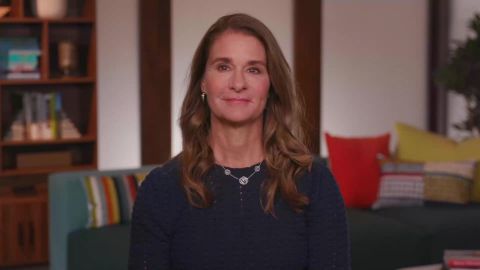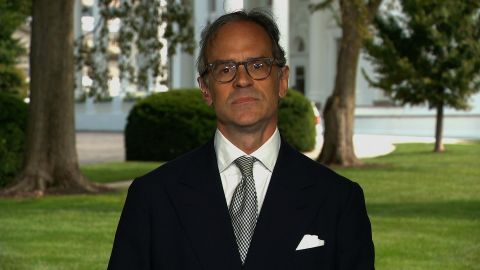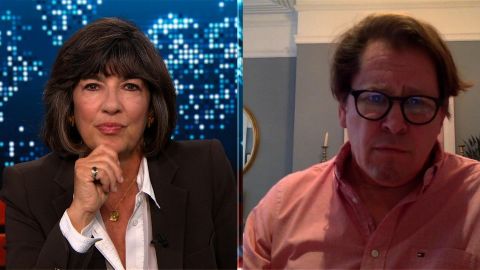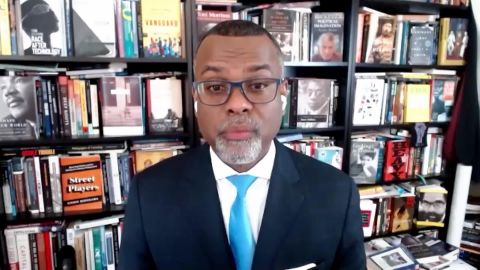Read Transcript EXPAND
CHRISTIANE AMANPOUR: You must be breathing a little sigh of relief, because here’s a spotlight on something that’s being portrayed as a success and that has received some kudos. Just tell me what you think this signing ceremony will do? What is its big, big meaning to you right now?
MICHAEL ANTON, FORMER U.S. NATIONAL SECURITY COUNCIL SPOKESMAN: Well, it’s the first normalization between Israel and an Arab state in a quarter of century and it’s not just one, but it’s two Arab states in the span of a month. Although to be realistic, these things take much more time than a month to work through. I think it means a lot of things for regional cooperation, economic cooperation in the Middle East. It means a lot — it has a lot to do with this emerging anti-Iran alliance that has brought the Arab states and Israel close together because they both have the same concern, and it’s possible that this could be a real milestone toward achieving peace between Israel and the Palestinians. You know, there are sort of two views of how you approach that as a negotiator from the outside. In the old way, which presidents of both parties tried, was get it to direct talks between Israel and the Palestinians early and often. And this way is — well, what happens if we talk to the Arab states around the Palestinians? Everybody knows that a final deal can’t really be made without the support of the Arab states who will need to legitimize it, who will need to encourage the Palestinians diplomatically and frankly, who will need to pledge them economic and other kinds of aid to prop up the Palestinian state. So, when these very powerful, rich and influential Arab states make a deal with Israel, I think you see peace between Israel and the Palestinians more and not less likely. Now, you know, no one can say when. This has been an open and very, very challenging issue for a half century or more, but I think we’ve taken a step in the right direction with this deal.
AMANPOUR: So, to be fair, I mean, it’s interesting that you mentioned the Palestinians because almost nobody on that platform did and they’re not obviously invited to the ceremony today, and they’ve broken off relations with the U.S., as you know between than I do, over the issue with Jerusalem, et cetera. Some have suggested, as you know, also, the UAE And Bahrain never had any war with Israel. So, it’s not really a peace agreement, it’s more of a normalization.
ANTON: It’s normalization, yes.
AMANPOUR: Yes. Great for Israel to feel that it is more surrounded by friends rather than enemies in the region. Some have suggested now that the Arabs if they’re at a table with Israel, if they increase normalization relations, they will be able to put the Palestinian case more emphatically with Israel rather than Israel being outside. Do you foresee that being a possibility?
ANTON: I expect that. And if I recall correctly, the foreign minister of the UAE in his remarks did mention the Palestinians at the ceremony just now.
About This Episode EXPAND
Christiane speaks with former National Security Council spokesman Michael Anton about current events. She also speaks with Brendan Byrne about the documentary “Gaza.” Melinda Gates sounds the alarm on what the Gates Foundation calls “mutually exacerbating catastrophes.” Eddie S. Glaude Jr. tells Walter Isaacson that the U.S. must confront the lies it tells itself about being a redeemer nation.
LEARN MORE



